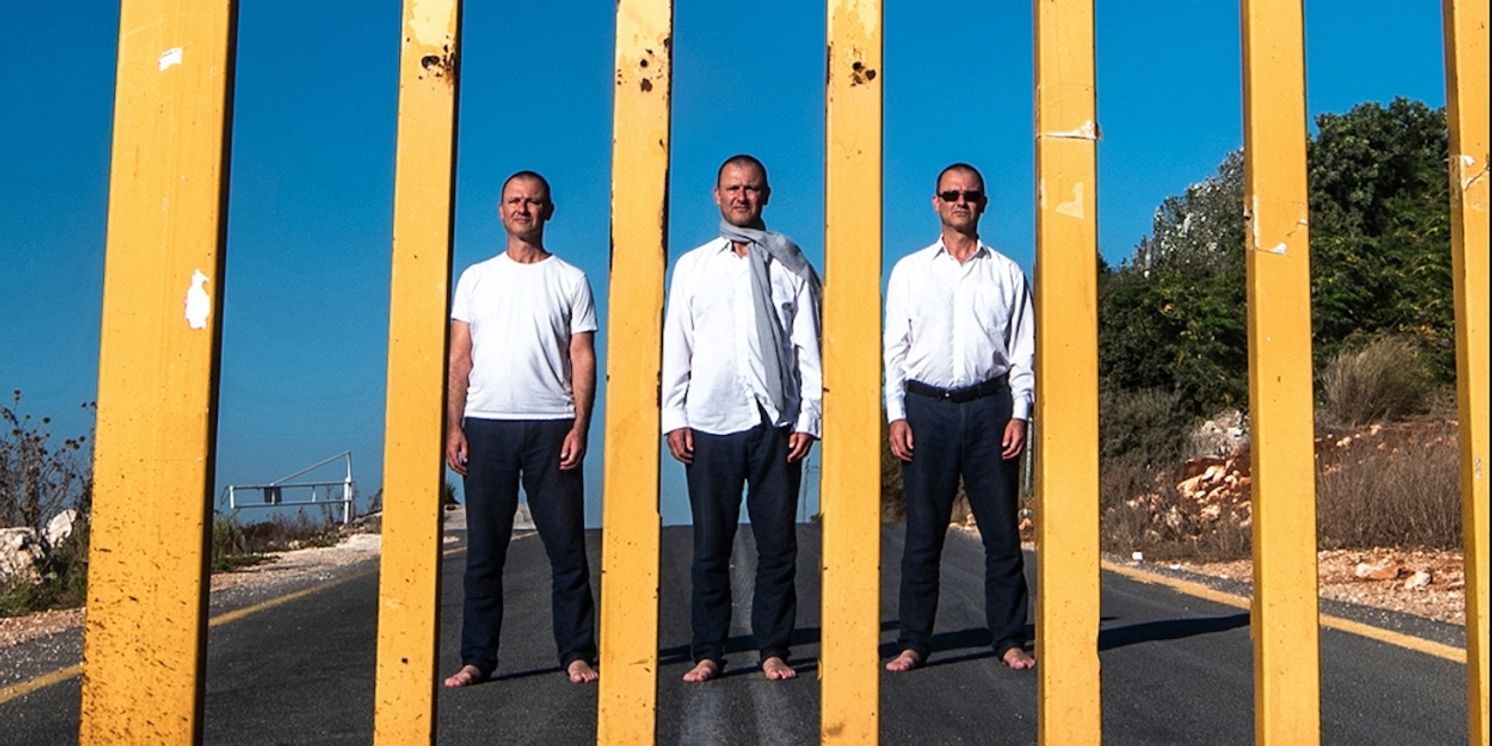Review: THE GATE at Capital Fringe - W. Washington Theatre
Part I of the Voices from a Changing Middle East Festival runs through July 24.

The gate has three settings: open, closed, and stuck. It's the same as hearts.
Such is the central tenant of Robbie Gringras' one-man show, The Gate, the opening production of the Voices from a Changing Middle East Festival and part of this year's Capital Fringe Festival.
The Gate, written and performed by Gringras and developed with the help of Dorit Shalom, focuses on a kibbutz (a commune community) in the Galilee, a region in the north of Israel. The kibbutz sits alongside an Arab village, and is separated by a gate that is open for free passage between the communities during the day, but is closed at night save for the select few granted access through their phones. Within the kibbutz, there are fierce debates about whether the gate should remain open or closed - some, like the peacenik Yiftach, argue that they should be open to welcome their neighbors, while others, like Udi, who lost his brother in the 1948 war, insist it should be shut to a hostile village with a long memory. Excluded from the discussion, are the Arabs themselves, like Amal, who simply wants to be able to return home after a long day at work on the kibbutz without the indignities of finding someone to ask to open the gate at odd hours of the night or waiting in her car until someone with access passes through. As tensions escalate between the two sides on the kibbutz, Gringras' play explores the impact and value of the differing perspectives, and how it's possible that the big things and the little things are more closely entwined than we think.
Gringras' script is fairly balanced between the perspectives presented, and paints a beautiful, clear picture of the communities central to the story. With a bare stage and a single actor, this performance could have felt very minimalist, but Gringras' rich storytelling transports the audience to the Galilee and brings each character (and even some inanimate objects) to life. Gringras' delivery is conversational, peppered with jokes and asides, but the undercurrent is a deep understanding of the viewpoints presented - as befits the conflict itself, no one is fully in the right or wrong, and there are valid points for each perspective, all of which are handled respectfully and with care. This nuanced approach encourages the audience to be more open in turn, creating an eagerness to listen.
The production also has solid technical elements. The show opens and closes with a call to prayer, piped in softly, as though from a distance, and that attention to detail is present throughout all of Gringras and Anthony Amos' careful sound design. Idan Herson's light cues are especially effective in storytelling, moving along with Gringras' descriptions and shifting as subtly as the sun's actual movements. The effect is mesmerizing and powerful.
Gringras muses at the beginning of the performance: "Some of us start with the big stuff and work our way down. Some start with the small stuff and work their way up. Some get stuck at one end or another." But what makes this production so wonderful is that it manages to look at both the big stuff and the little stuff with equal interest and respect, and the result is a thoughtful, engaging play about the different ways we view and interact with our world.
The Gate is playing at Capital Fringe's W. Washington Theater through Sunday, July 24th. Performance run time is approximately 45 minutes, and is followed by a brief discussion. More information about The Gate, Capital Fringe, and the Voices from a Changing Middle East Festival can be found on the respective websites.
Image courtesy of Capital Fringe.
Reader Reviews
Videos

